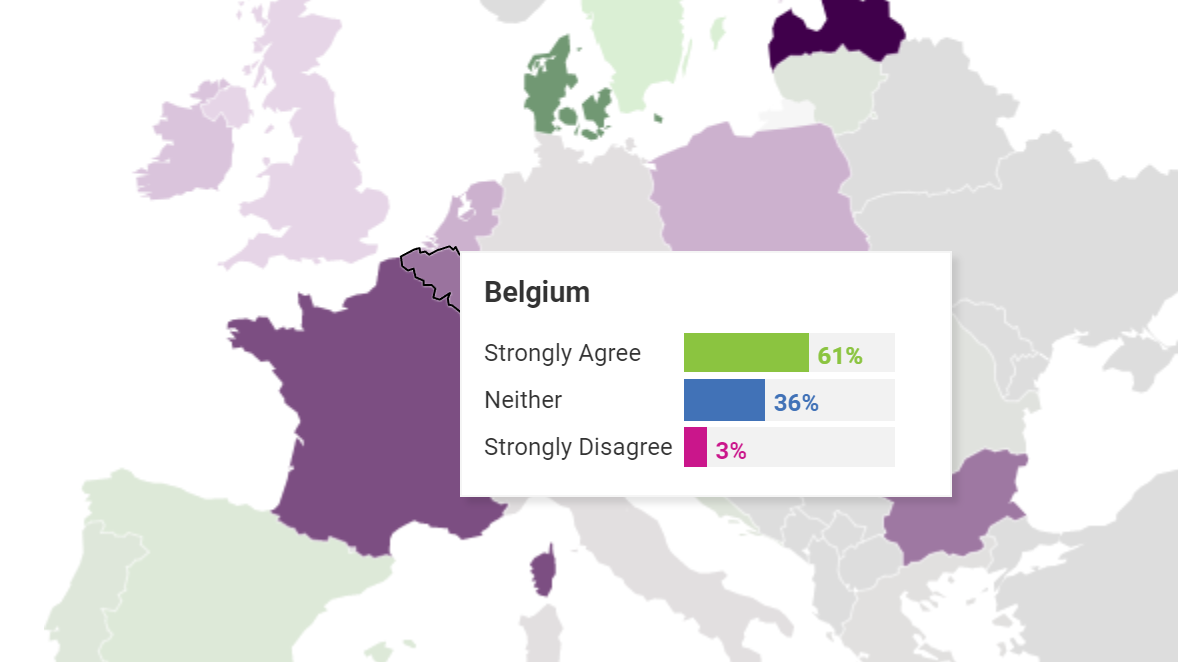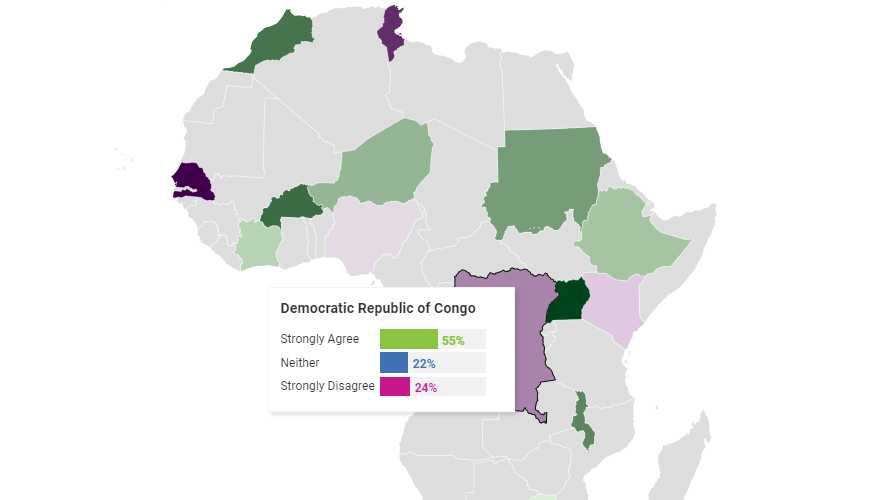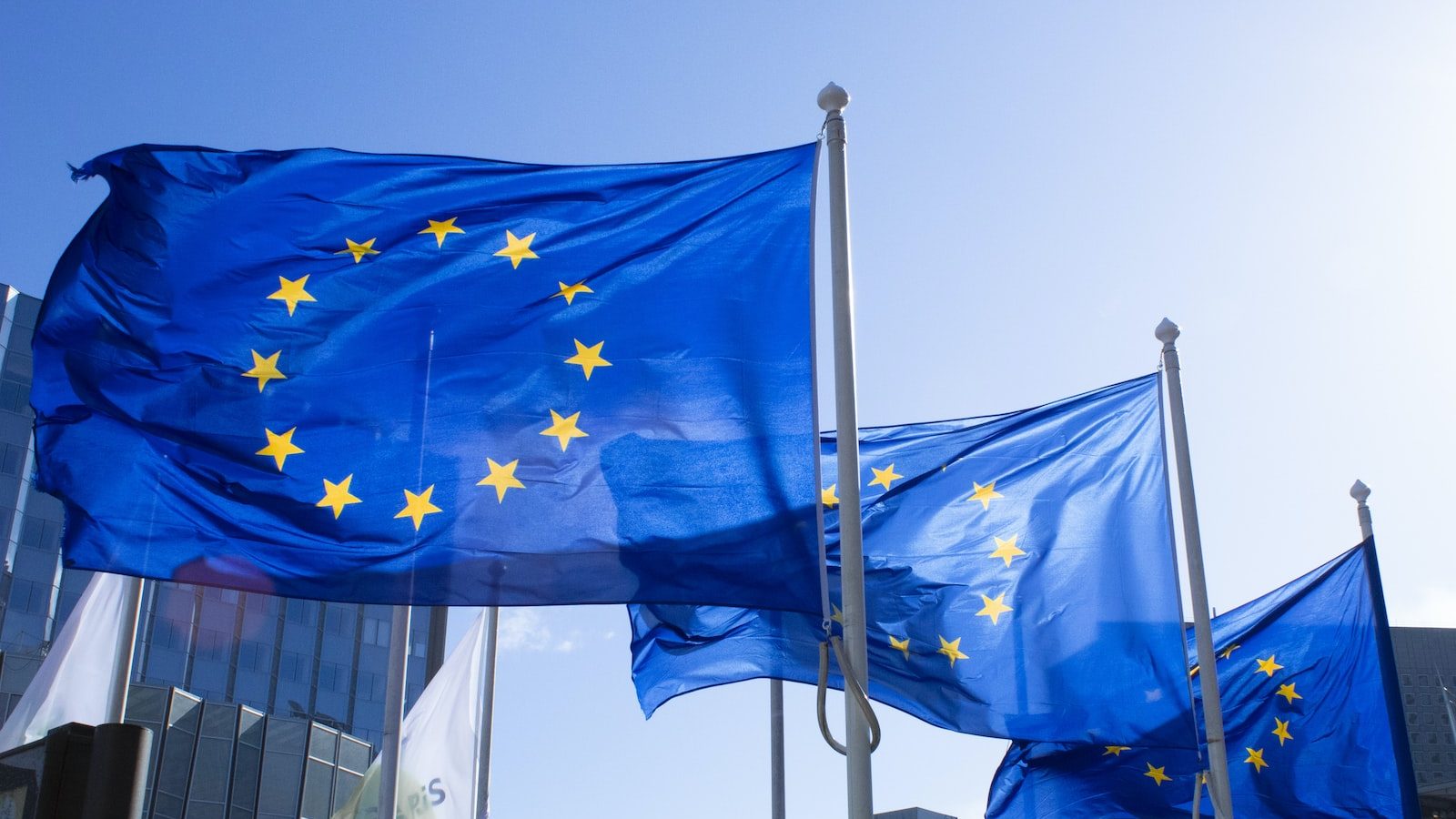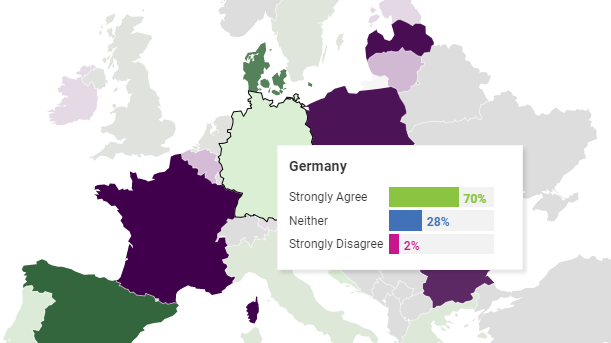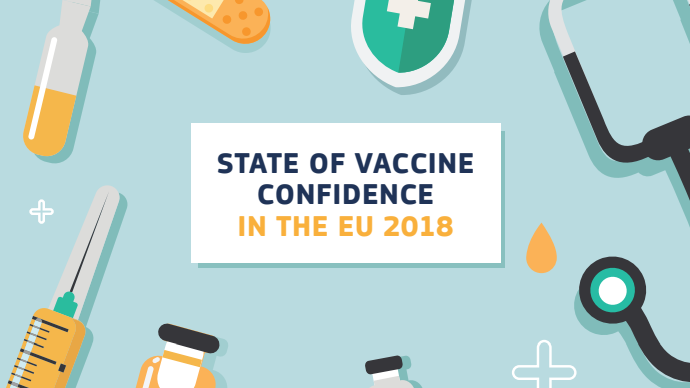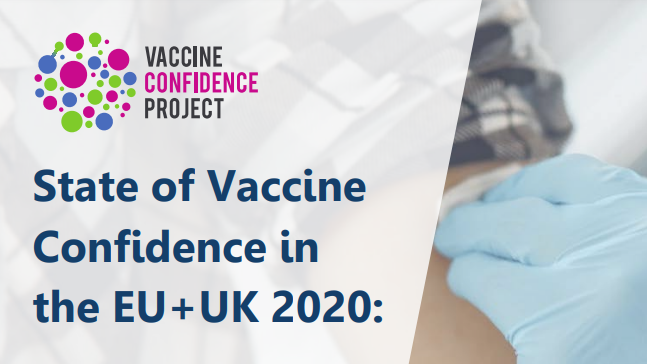This global survey builds on previous studies of vaccines’ perceived importance, safety, effectiveness, and religious compatibility. The worldwide survey investigates attitudes towards vaccines on an unprecedented scale, interviewing 65,819 respondents across 67 countries. Hierarchical models are employed to probe relationships between individual- and country-level socio-economic factors and vaccine attitudes obtained through the four-question, likert-scale Vaccine Confidence Index.
Findings
Overall sentiment towards vaccinations is positive across all 67 countries, however there is wide variability between countries and across world regions. One pattern shared by diverse countries worldwide is a worrying gap between high confidence in vaccine importance yet lower confidence in safety, identifying at-risk countries whose vaccine acceptance may be more precarious than previously thought.
Vaccine-safety related sentiment is particularly negative in the European region, which has seven of the ten least confident countries, with 41% of respondents in France and 36% of respondents in Bosnia & Herzegovina reporting that they disagree that vaccines are safe (compared to a global average of 13%). The oldest age group (65+) and Roman Catholics (amongst all faiths surveyed) are associated with positive views on vaccine sentiment, while the Western Pacific region reported the highest level of religious incompatibility with vaccines. Countries with high levels of schooling and good access to health services are associated with lower rates of positive sentiment, pointing to an emerging inverse relationship between vaccine sentiments and socio-economic status.
Importance
Percentage of people who strongly agree that vaccines are important. “Neither” encompasses “Don’t know,” “Tend to Agree,” ”Tend to Disagree,” and “Refused.”
Safety
Percentage of people who strongly agree that vaccines are safe. “Neither” encompasses “Don’t know,” “Tend to Agree,” ”Tend to Disagree,” and “Refused.”
Effectiveness
Percentage of people who strongly agree that vaccines are effective. “Neither” encompasses “Don’t know,” “Tend to Agree,” ”Tend to Disagree,” and “Refused.”
